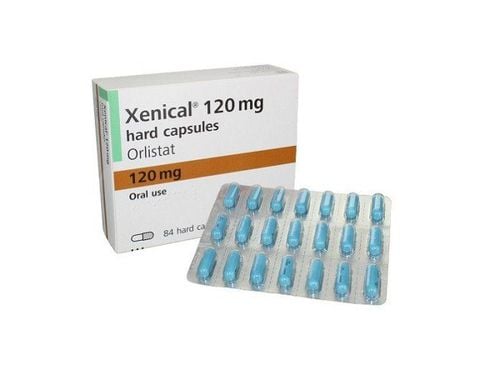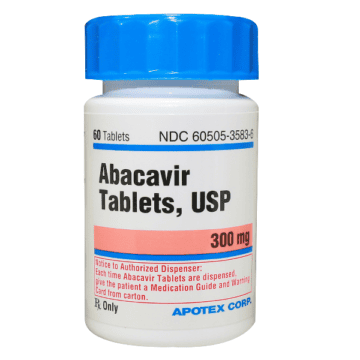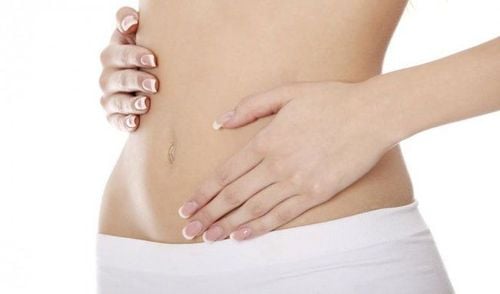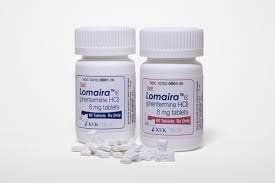This is an automatically translated article.
Energy expenditure is the amount of energy a person needs to perform physical functions such as breathing, circulating blood, digesting food, or exercising. Energy is measured in calories, and your total daily energy expenditure (TDEE) is the number of calories you burn each day. To prevent overweight, excess energy intake must be balanced with energy expenditure.1. What is energy consumption?
To understand what energy expenditure is, we first need to understand how the body produces energy. To fuel movement and daily functions, each person's body must produce energy in the form of heat.What is Kilocalories? The energy found in food is measured in kilocalories, or calories as we usually call it. Technically, a kilocalorie is the amount of heat required to raise the temperature of one kilogram of water by one degree Celsius. The total number of calories the body burns for energy each day is the total daily energy expenditure of a fish. specific kernel. Total daily energy expenditure varies from person to person, depending on body size, sex, body composition, genetics, and activity level. For example, the total energy expenditure for a small, sedentary woman could be 1800 calories or less per day. On the other hand, total energy expenditure for a large, active man could easily reach over 2000 calories. Because the man in this example has more muscle, a higher daily activity level, and is a larger person, his total energy expenditure is therefore greater.
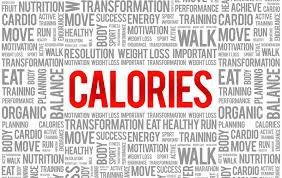
Năng lượng tìm thấy trong thực phẩm được đo bằng kilocalories, hoặc calo như chúng ta thường gọi
2. Calculation of energy consumption
Each person can estimate his or her own energy expenditure for a particular activity using an online activity calculator. An example of a calculator is provided by the American Council on Exercise via the link: https://www.mealpro.net/blog/fitness-calculators/. The online calculator also allows you to calculate calories burned per day using the same formulas used in medical institutions.It is important to note that the energy expenditure calculators provided are based on an estimate of the body's daily calorie burn and on the data provided by the calculator. These data (such as your activity level) can change on a daily basis. No one's energy expenditure is exactly the same every day, so to get the most out of your body's energy expenditure calculations, use them as a guide to your daily calorie intake. . Adjust numbers as needed based on changes in activity level or changes in one's own weight.
3. Lose weight
To lose weight, the body must use more calories than it is given. That means a person trying to lose weight needs to increase energy expenditure, decrease calorie intake or, ideally, a combination of the two to create a calorie deficit to cause excess body fat. is burned. Most experts recommend creating a total calorie deficit of 3500–7000 calories to lose about 0.5 kg of body fat per week.You may come across websites, weight loss programs and even "experts" that say you should ignore energy expenditure when setting a weight loss goal or perhaps you feel like a method of weight loss Calorie intake has failed before. But it's important to note that even if you get your calories from nutritious foods, you'll still need to reduce your total intake to lose weight. Creating a calorie deficit sounds simple, but trying to lose weight can be challenging. It requires people with weight loss needs to learn how to change their own daily habits. For many people, eating less is easier than trying to increase energy expenditure, since the amount of exercise required to create a calorie deficit is quite high.
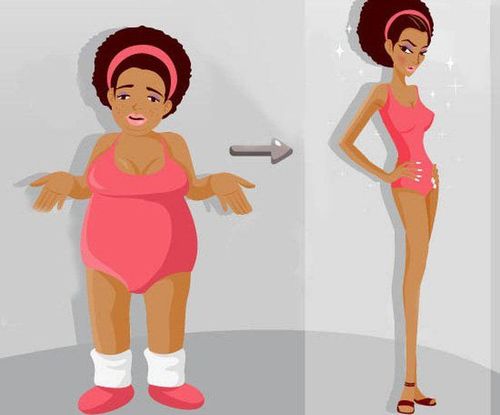
Để giảm cân, cơ thể phải sử dụng nhiều calo hơn so với mức được cung cấp
4. Increase the body's energy expenditure
Physical activity in one's daily life can provide many health benefits beyond its impact on energy expenditure. Exercise reduces the risk of diabetes, metabolic cardiovascular diseases and many other diseases. It's also a natural way to improve morale and raise energy levels. Although regular exercise is the most effective way to increase the body's energy expenditure, there are still several other methods that have been proven effective, including:Non-thermogenic activity Exercise Scientists use a rather strange name to describe the calories burned from the small movements people usually do during the day, excluding exercise. This way of expending energy is called non-exercise thermogenesis or NEAT. It includes things like carrying groceries and getting up from your desk or even feeling restless. Believe it or not, NEAT non-exercise thermogenic activities can make a big difference in weight loss. Everyone can take simple steps to increase NEAT with easy changes to their own habits.
Thermic effect of food (TEF) It sounds counterintuitive, but the body can completely expend energy when eating. The process of chewing and digesting food requires the coordination of many organs and the energy of our body. Meanwhile, there are some foods that burn more calories than others. Scientists call this the thermic effect of food, or TEF. Unfortunately, a diet rich in TEF foods alone won't burn enough calories to make a noticeable difference in your weight loss regimen. However, to give yourself every advantage in the process, choose foods that burn more calories to increase energy expenditure slightly.
The role of drugs and supplements There are a number of drugs and supplements that are said to boost metabolism, making it easier for the body to burn more calories each day. But many of these diet pills are often unsafe or ineffective. Diet pills and supplements are generally not recommended unless directed by your doctor.

Các loại thuốc ăn kiêng và chất bổ sung thường không được khuyến khích sử dụng trừ khi có sự chỉ dẫn của bác sĩ
Whether you're trying to lose weight, gain weight or maintain your weight, your body's energy expenditure is the ultimate deciding factor and finding the right balance is key to your efforts to maintain it. Maintain a reasonable weight. Not every day, but combining energy intake with average and time-consuming energy expenditure will help us maintain a healthy weight long-term. If you feel you need to change your weight to improve your health, change your food intake and energy expenditure together to improve your body composition so you can reach your desired fitness level.
Periodic health check-ups help to detect diseases early, so that there are treatment plans for optimal results. Currently, Vinmec International General Hospital has general health checkup packages suitable for each age, gender and individual needs of customers with a reasonable price policy, including:
Health checkup package general Standard 2020 General health check-up package VIP 2020 General health check-up package Special 2020 General health check-up package Children 2020 General health examination package Work permit - Issuance of work permits Examination results of people sick will be returned home. After receiving the results of the general health examination, if you detect diseases that require intensive examination and treatment, you can use services from other specialties at the Hospital with quality treatment and services. outstanding customer service.
Please dial HOTLINE for more information or register for an appointment HERE. Download MyVinmec app to make appointments faster and to manage your bookings easily.
Reference source: nutrition.org.uk; verywellfit.com




